”There the dreadful Erichtho writhed,
who summoned back the shadows to their bodies“
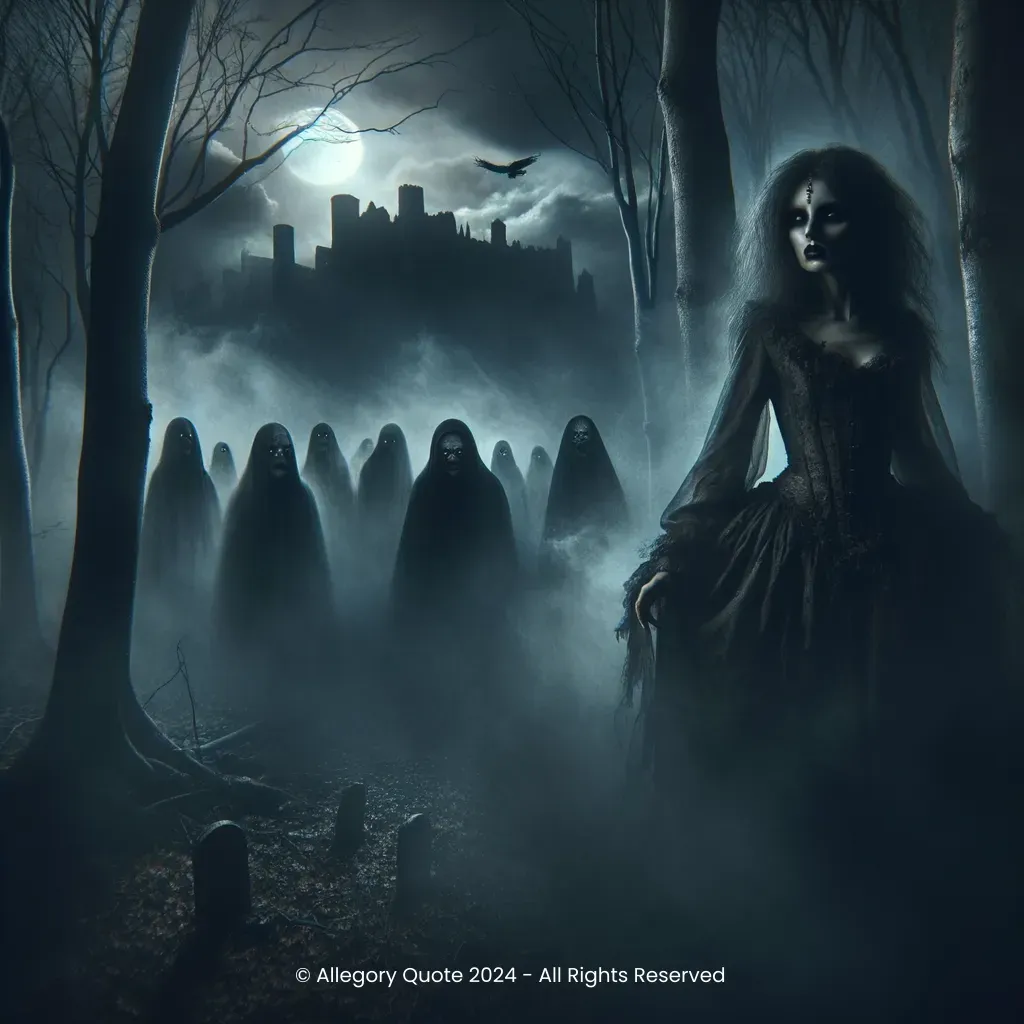
- Meaning
- The phrase describes Erichtho, a famous witch from classical antiquity, known for her necromantic abilities to bring the dead back to life. Dante places her in the sixth canto of Inferno within the walls of the city of Dis, an infernal place where heretics are punished. Philosophically, this passage can be interpreted as a condemnation of black magic and the human attempts to subvert the natural order of things, such as the separation between life and death. Psychologically, it can represent humanity's archaic and universal fears regarding death, the boundary between life and the afterlife, as well as the unease associated with the occult and the supernatural.
- Allegory
- The image includes Erichtho as a symbol of the power and fear associated with necromancy and the occult. The shadows rising from the earth emphasize the boundary between the realm of the living and the dead, highlighting the theme of manipulating natural forces. The walls of Dis in the background underscore the infernal setting, representing the inevitability of divine punishment. The spectral light illuminating Erichtho's face symbolizes the dangerous allure of the supernatural, at once fascinating and terrifying.
- Applicability
- The message of this phrase can be applied to modern life as a warning against attempts to manipulate forces beyond human control. It urges us to respect natural limits and to consider the consequences of our actions, especially when venturing into unknown or dangerous territories. In daily life, this can be seen as an invitation to prudence, wisdom, and responsibility in the use of one's abilities and knowledge.
- Impact
- The phrase and, in general, Dante's "Divine Comedy" have had a profound impact on Western culture. The work has influenced not only literature but also philosophy, art, theology, and popular culture. The powerful imagery and universal themes addressed in the "Divine Comedy" continue to resonate over time and have been the subject of countless analyses and interpretations. The figure of Erichtho, with her connections to the occult and necromancy, continues to represent the fascination and fear of the supernatural beyond human control.
- Historical Context
- The "Divine Comedy" was written in the first quarter of the 14th century, one of the most fascinating periods of Italian history, an era of intense political, religious, and intellectual fervor. The figure of Erichtho originates from Roman and Greek mythology, where she was known as one of the witches in the epic poem "Pharsalia" by Lucan, written during the 1st century AD. Lucan describes her resurrecting the dead to predict the future, thus establishing the gothic and infernal context of Dante's narrative.
- Criticisms
- The "Divine Comedy" has been the subject of endless criticism and debate. Some critics have emphasized its moralistic aspect and the rigid division between good and evil, which can appear anachronistic and dogmatic. In modern times, the literal interpretation of the work can be discussed in light of different religious and cultural sensibilities. However, the allegorical and symbolic dimensions of the "Divine Comedy" make it an open work, capable of stimulating critical thinking and ethical reflection.
- Variations
- The figure of the witch or sorceress who evokes the dead is present in many cultures. For example, in Japanese mythology, there are tales of onmyoji (sorcerers) who have power over the spirit world. In West Africa, similar figures appear in the stories of the griot and Yoruba myths, which sometimes include figures who can communicate with the spirit world.
-
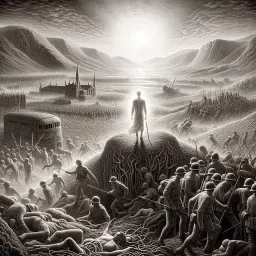
In the midst of chaos, there is also opportunity.
-
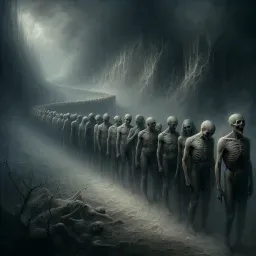
I saw such a long throng of people, I would not have believed death had undone so many.
-

There’s magic in the air tonight, and anything can happen.
-
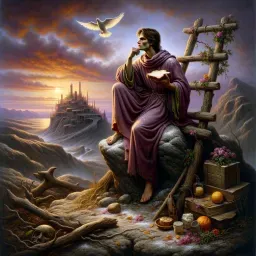
You will taste how salty another's bread is, and how hard it is to tread another's stairs up and down.
-
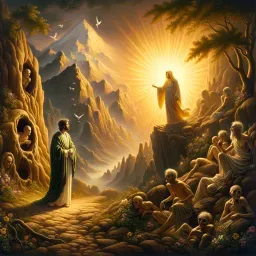
And I: 'Master, what is so heavy that it makes them lament so strongly?'.
-
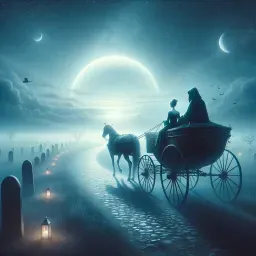
Because I could not stop for Death, He kindly stopped for me; The carriage held but just ourselves And Immortality.
-
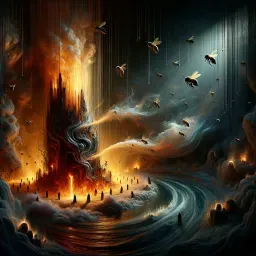
He had already reached the place where the roar of water falling into the next circle could be heard, similar to the buzzing of beehives.
-
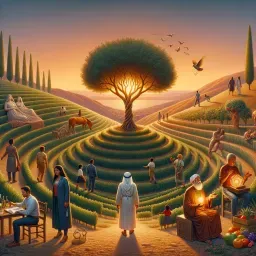
There is no other life; why don’t you give your whole heart to this one?
-
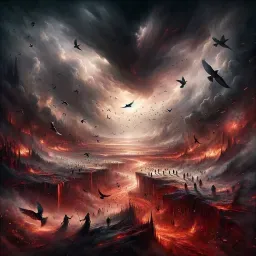
And as the starlings are borne on their wings, in the cold season, in a broad and full troop, so does that blast bear the evil spirits along.
-
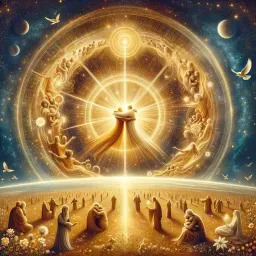
Infinite goodness has such wide arms, that it embraces all that turns to it.
No Comments